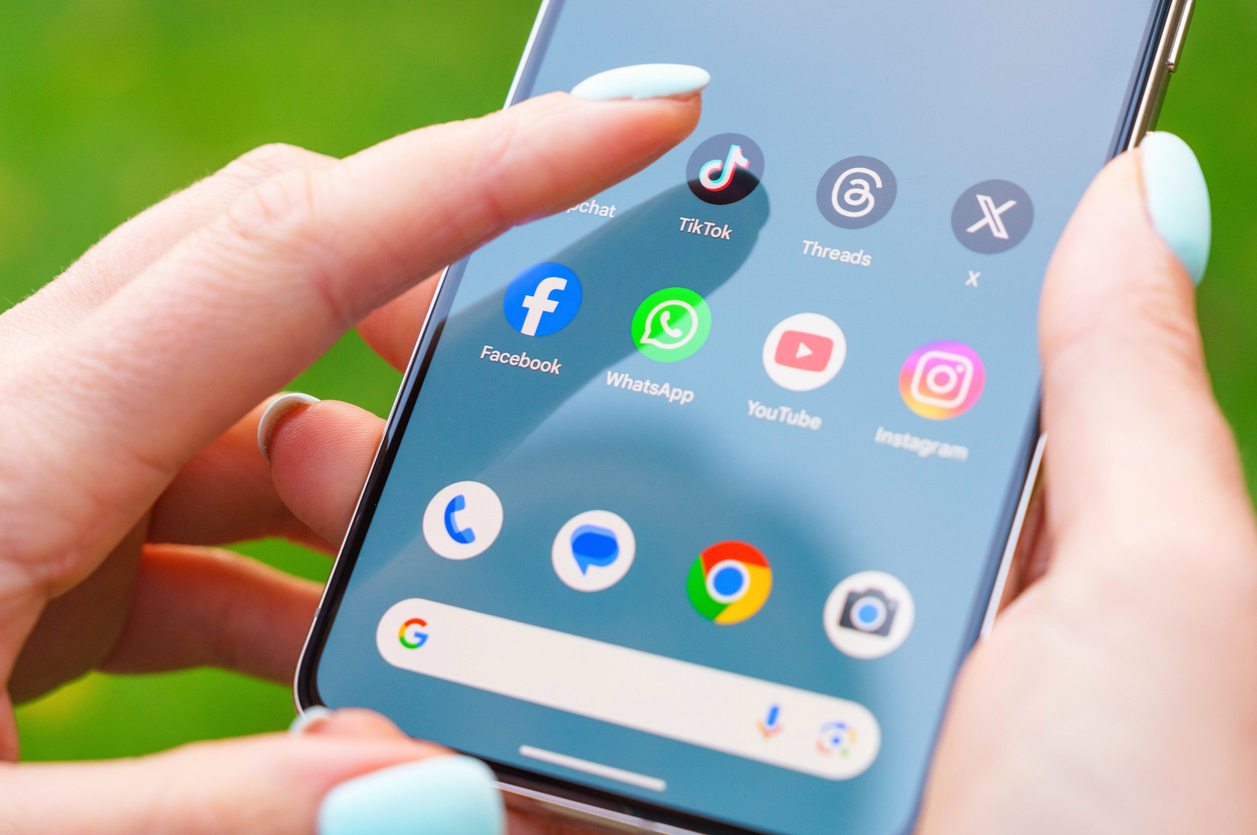The Scoop: TikTok positions itself as more than a kids’ dancing app in bid for survival
Plus: A better-than-expected jobs report; LSU coach causes Streisand Effect.

A nun is the face of TikTok in a new commercial emphasizing the broader importance of the app.
“Because of TikTok, I’ve created a community where people can feel safe asking questions about spirituality,” Sister Monica Clare, a New Jersey nun, says in the TV spot. The New York Times reports that the sister is just one of many unlikely spokespeople for the besieged app, alongside a rancher and a Navy veteran, who are arguing against a bill that would ban TikTok from U.S. app stores in a bid to force TikTok’s Chinese-owned parent company to divest. The bill has already passed the House with rare bipartisan support.
But TikTok won’t go down without a fight. The app is turning the future of the app into an election-year issue by spending most heavily on the ads in battleground states like Pennsylvania, Nevada and Ohio, ostensibly in the hopes that citizens in those states will contact their senators and demand they vote to keep TikTok — or face consequences at the polls.
The ads, which are also running on sites like Instagram and Facebook, are an attempt at humanizing an abstract concept like an app and making it real.
“TikTok is framing itself as a brand that stands for freedom and democratization of communication and frankly a lot of values that most people feel quite comfortable with,” Cait Lamberton, a marketing professor at the University of Pennsylvania’s Wharton School, told the Times.
Why it matters: It’s no secret that lawmakers can have some difficulty wrapping their heads around modern technology, including TikTok. The questions asked at a 2023 hearing with TikTok CEO Shou Chew were widely mocked as Congresspeople asked questions about WiFi connectivity and whether TikTok tracks pupil dilation to feed its algorithm (it does not).
But PR and advertising can help them connect the dots and better understand the complex role that the app plays in daily life — a role that extends far beyond the frivolous trend dances of the Congresspeople’s grandchildren as creators across disciplines and industries educate young people on religion, commerce, art and more, in the place where they spend much of their entertainment time.
“TikTok definitely has a branding issue in the United States,” Sister Monica Clare told the New York Times. “Most people that you talk to, especially people above the age of 60, will say that TikTok is just a bunch of superficial garbage. They don’t use it. They don’t understand what the content is.
“It’s very smart of TikTok to say no, that’s not what we are — we’re a lot more than that.”
Whether or not TikTok is a national security threat isn’t for us to say. But we can confidently say that Sister Monica Clare is right, and the implications of the app disappearing are far broader than some realize. This campaign could change a few minds — or votes.
Editor’s Top Reads:
- The U.S. added 303,000 jobs in March, smashing Wall Street’s expectations of just 200,000 jobs, CNBC reported. The unemployment ticked a hair lower to 3.8%, in line with expectations, and hourly wages rose 0.3%, again on par with expectations. Healthcare, government, leisure and hospitality, and construction led the charge with the most jobs added. Stock and treasury futures edged higher on the news. But CNBC reports that the overall stock market is jittery and anxious for cuts to interest rates, and this strong jobs report could keep rates higher longer. It’s all part of the messy, muddled moment that the U.S. economy is having. Keep your eye on the larger picture and be ready for change.
- Louisiana State University women’s basketball coach Kim Mulkey caused the dreaded Streisand Effect by calling a Washington Post story “a hit piece” before it was ever published, Axios reported. According to data from Muck Rack, 5 million people read about the story (and how bad it was likely to be) before it was ever published. That’s likely far more than would ever have read the story on the paywalled website without the comments. It’s a strong reminder to counsel clients not to jump the gun and not to draw attention to bad news. Only respond if necessary. Otherwise, keep your eye on the court.
- X is giving out some of its controversial blue checkmarks for free — but not everyone wants them. The Verge reports that the platform has begun returning the checks, whether or not users want them. Elon Musk previously announced that accounts with 2,500 Premium followers will get the check back — something achievable for accounts with decent-sized followings. But the problem is that what the checkmark stands for has changed. No longer is it a sign that someone is notable or a reliable source on a topic — to many, it indicates an agreement with Musk they do not want. The Verge shows multiple re-checked users asking how they can opt out or hide the checks. This is a vivid illustration of how quickly the meaning of brand symbols can change, and how something that was once desirable can become despised. Be consistent with symbolism and the rules you use to define their meaning.
Allison Carter is editor-in-chief of PR Daily. Follow her on Twitter or LinkedIn.







